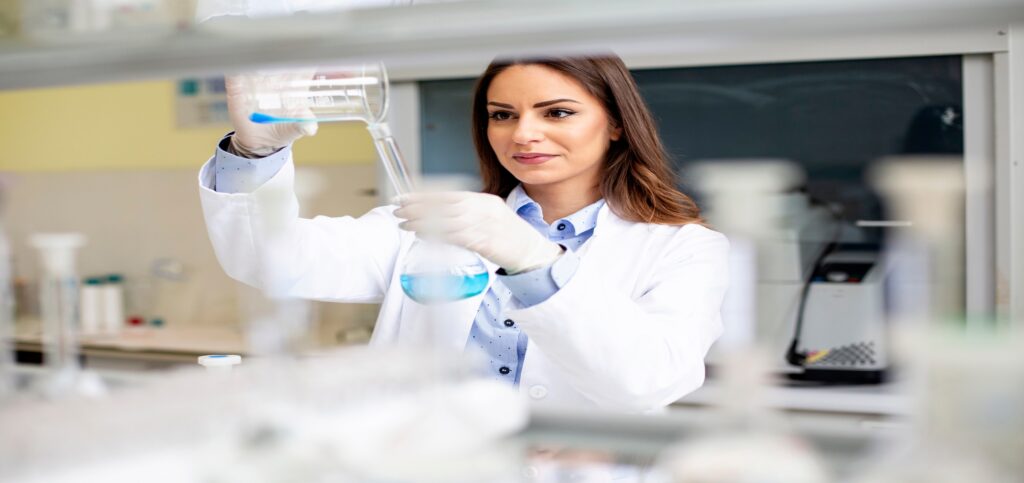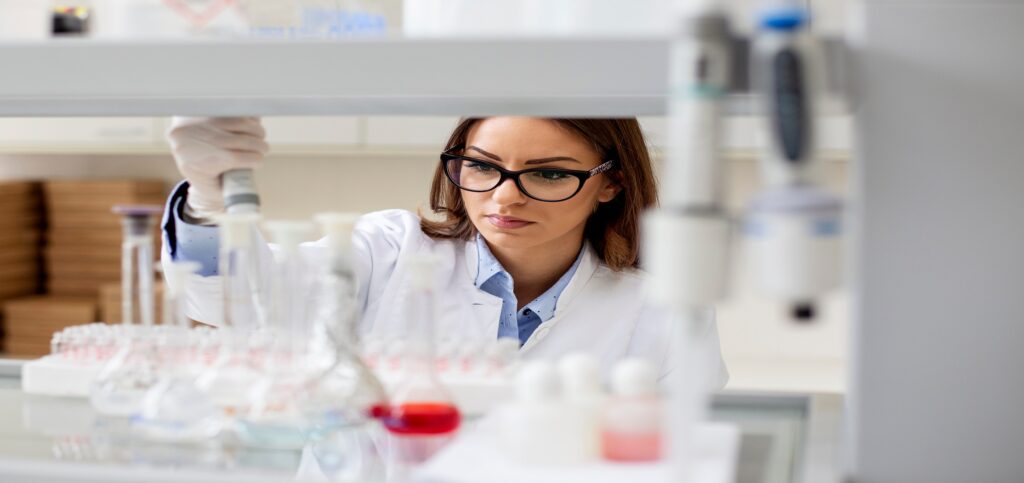No products in the basket.
A lab technician is a scientific professional who works in a laboratory setting. As a lab technician, you will assist scientists and researchers. Well, have you ever wondered what happens behind the scenes in a scientific laboratory?
If you’re considering a career in science but the idea of extensive research seems daunting, then this blog is for you. Being a lab technician is an amazing path for your future. Here, we’ll explore their daily tasks, the skills they need to succeed, and the diverse fields in which they contribute their expertise.

What is a lab technician?
A lab technician, or laboratory technician, works in a laboratory. They help scientists and researchers by doing less demanding tasks. These include setting up equipment, running experiments, and recording results. They also make sure the lab follows safety rules. Lab technicians work in different places, like hospitals, universities, and companies. They’re important because they support scientific research and help make discoveries possible.
What Does a Lab Technician Do?
A lab technician’s role involves various tasks to support scientific research and analysis. The duties of lab technicians will vary depending on the type of lab they work in. A medical lab technician might focus on analysing blood samples for diseases. However, an environmental lab technician might be responsible for testing water quality. Some general duties and responsibilities as a lab technician include:
- Getting equipment ready for experiments.
- Doing experiments following set rules.
- Collecting and analysing data.
- Keeping good records of what they do.
- Helping to maintain and fix lab equipment.
- Making sure everyone stays safe in the lab.
- Working with other team members and sharing findings.
How do I become a lab technician?
Becoming a lab technician involves acquiring the necessary education, certifications, and experience. Here’s a roadmap to get you started:
Education:
- Minimum Requirement: An associate degree in a laboratory science field is usually the minimum requirement to become a lab technician. Common programmes include Associate of Science (AS) in Medical Laboratory Science, Clinical Laboratory Science, or Biology. These programmes provide a strong basis in biology, chemistry, and laboratory techniques.
- Bachelor’s Degree Option: A bachelor’s degree is not mandatory. But a bachelor’s degree in a related field like biology, chemistry, or biochemistry can give you an edge in the job market.
Certification and Licensure:
- Certification: Earning certification shows your competency and knowledge in a specific lab area. National organisations like the UK Society for Clinical Pathology (ASCP) offer certification exams in various lab specialities.
- Licensure: Licensure requirements for lab technicians vary by state. Check with your state’s licensing board to determine if licensure is mandatory and what steps you need to take to qualify.
Experience:
- Internships and Volunteer Work: Gaining experience in a laboratory setting is invaluable. Thus, you should look for internship opportunities at hospitals or research institutions. Volunteering in a lab can also be a good way to get your foot in the door.
How much can you earn as a lab technician?
In the UK, a lab technician’s salary can vary depending on experience, location, and the specific lab environment. Here’s an analysis of what you can expect to earn:
- Average Salary: The average lab technician salary in the UK is around £24,500 per year (as of April 2024). This translates to roughly £12.56 per hour.
- Entry-Level Positions: Starting salaries typically range from £22,000 to £19,000 per year, depending on your qualifications and the specific role.
- Experienced Technicians: With experience and additional certifications, lab technicians can expect their salaries to increase. Salaries for experienced technicians can range from £28,000 to £30,475 annually.
- Senior Roles: Senior lab technicians, those in supervisory or management positions, can command salaries in the range of £30,000 to £40,000 per year.

Is a career as a lab technician right for you?
A career as a lab technician could be a great fit for you if you possess the following qualities and interests:
- Enjoy Working with Science:
If you have a genuine interest in science and a desire to contribute to scientific discovery, you will be happy to work as a lab technician.
- Meticulous and Detail-Oriented:
Lab work requires precision and accuracy. Hence, you should be comfortable following protocols carefully and have a keen eye for detail.
- Strong analytical skills:
As a lab technician, you need to have good analytical skills. Thus, you will be able to interpret the data and identify patterns.
- Problem-Solving Abilities:
Things don’t always go according to plan in a lab. You should be comfortable troubleshooting issues and finding solutions to unexpected challenges.
- Enjoy working independently:
While lab technicians often collaborate with scientists and researchers, they also spend a significant amount of time working independently on assigned tasks.
- Organised and efficient:
Laboratory environments can be fast-paced. You should be able to manage your time effectively and stay organised to ensure a smooth workflow.
- Good communication skills:
While lab work may seem solitary, effectively communicating results and observations to scientists and colleagues is important.
Conclusion
Lab technicians’ skills are essential for progress in various fields of science. They do many important jobs. These are setting up equipment, running experiments, and keeping records. Importantly, their work helps scientists make discoveries and ensures safety in labs. Next time you hear about new scientific advancements, remember lab technicians’ vital role behind the scenes. Hopefully, this blog has unveiled what a lab technician does and their fascinating world.




